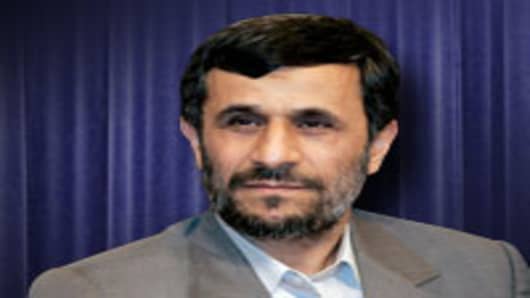Tensions have risen as Western governments move to sanction Iran for its nuclear weapons program. This past weekend, President Obama signed a bill putting new economic sanctions on Iran, including on its Central Bank, in an effort to make it more difficult for Iran to trade oil.
Pulitzer prize winning author Daniel Yergin, Chairman of IHS CERA, shared an excerpt on Iran from his latest book “The Quest: Energy Security, and the Remaking of the Modern World.”
The piece describes how the balance of power in the Gulf region could shift should Iran obtain nuclear weapons.
Daniel Yergin's Exercpt on Iran:
The Balance of Power:
An Iran with nuclear weapons would change the balance of power in the Gulf. It would be in a position, to borrow a phrase that Franklin Roosevelt had used prior to World War II, to “overawe” its neighbors. It could assert itself as the dominant regional power. Iran could directly threaten to use the weapons in the region—or actually use them—although the latter would likely trigger a massive and devastating response. But such weapons would also provide it with a license to project its power and influence with what it might regard as impunity throughout the region—both directly and through its proxies.
On top of all of that, Iran, as a hegemonic nuclear power, would likely try to more directly assert dominance over the flow and price of oil, displacing the Saudis. In short, Iranian possession of such weapons would, at the very least, create insecurity for the region and for world oil supplies.
Many governments fear that elements in the Iranian government would, if they have not already done so, go into the proliferation business and provide fissile material to other governments, to its proxies like Hezbollah in Lebanon, or to terrorist groups.
The Intentions of Those Who Hold Nuclear Weapons
When all is added up, the assessment of the impact of a nation’s acquiring nuclear weapons depends not only on the possession of the weapons themselves but also on the intentions of those who hold them.
And that is why the rhetoric from Tehran would take on new significance were Iran to have those weapons. Ahmadinejad has said that the ultimate mission of the Islamic Republic is to prepare the way for the return of the Hidden Imam, who disappeared in the ninth century but whose reappearance will be necessarily preceded by a period of violent chaos and fiery war that will culminate in “the end of times”—and that this moment is imminent.
When the Mahdi returns, Ahmadinejad has added, he will destroy the unjust “who are not connected to the heavens”—which means the United States, the rest of the West, and Israel— and lead survivors to “the most perfect world.” All this can only increase the deep anxiety about his finger being anywhere close to the nuclear button.
Adding to the danger is the lack of communication with Tehran, which could increase the likelihood of an “accidental” nuclear confrontation. Even during the tensest moments of the Cold War, the United States and the Soviet Union had communication channels, including, after the Cuban Missile Crisis in 1962, the “hotline” between the White House and the Kremlin to assure immediate contact during a crisis. No such channels exist with Iran.
Indeed, there is very little understanding of how the regime functions, who makes decisions, and how the factions compete for power. All this adds to the risk. The lack of understanding also extends to the Gulf Arab states. The great worry, observed a leader of one of the Gulf nations, “is not how much we know about Iran, but how much we don’t.”
The alarm among the other Gulf countries, as well as in Israel, about Iran’s objectives has been rising in direct proportion to Iran’s progress toward nuclear weapons capability. They fear that Iran will become more and more aggressive in seeking to assert its dominion over the region and in trying to destabilize other regimes. As one Saudi put it, “They want to dominate the region, and they express it strongly and clearly.” Many of the Arabs believe that intermittent “negotiations” is a standard Iranian tactic to create a cover while it proceeds with its nuclear program—what one official described as “their usual strategy” of “leading you on with false promises, designed to buy more time.”
Some Gulf Arabs are convinced that Iran is pursuing a strategy of encirclement, from its presence in Iraq and subversion among the Shia populations in Bahrain and eastern Saudi Arabia and in Yemen to promoting insurgency on Saudi Arabia’s southern border to financing and supplying weapons to Hezbollah in Lebanon and Hamas in Gaza. This encirclement would pressure the Arab Gulf states and, at the same time, put assets in position that Iran could activate during some future time of tension or crisis. The outcome in Syria, Iran’s one reliable ally in the Arab world, will be another key element in the regional balance of power.
For years, the Israelis have spoken of a nuclear Iran as an “existential threat” to the very survival of their nation and its people. Now some Arabs also describe Iran as an “existential threat.” As a leader of one of the emirates put it, his country is only “46 seconds from Iran as measured by the flight time of a ballistic missile.”
Follow Patti Domm on Twitter: @pattidomm




